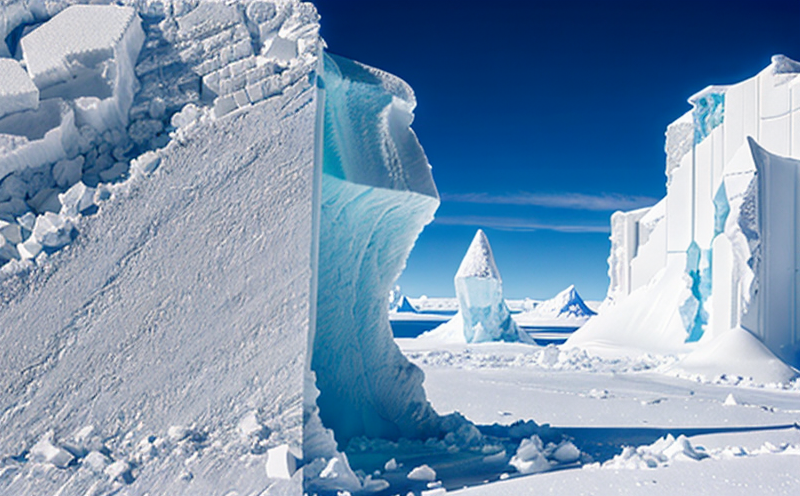Fracture toughness of materials in cryogenic environments
Unleashing the Secrets of Fracture Toughness in Cryogenic Environments Why Eurolabs Laboratory Service is a Game-Changer for Your Business
In todays fast-paced industrial world, companies are constantly pushing the boundaries of innovation and performance. Materials science plays a vital role in this pursuit, as researchers and engineers strive to create materials that can withstand extreme conditions, including cryogenic temperatures. Fracture toughness of materials in cryogenic environments is a critical parameter that determines a materials ability to resist cracking and breaking under stress at low temperatures.
At Eurolab, we understand the importance of fracture toughness testing in cryogenic environments and offer a comprehensive laboratory service to help businesses like yours overcome this challenging aspect of material development. In this article, well delve into the world of fracture toughness, exploring its significance, benefits, and key advantages, as well as providing answers to frequently asked questions.
What is Fracture Toughness in Cryogenic Environments?
Fracture toughness refers to a materials resistance to crack propagation under stress. In cryogenic environments, where temperatures can drop to near absolute zero (-15C), materials are subjected to extreme conditions that can cause them to become brittle and prone to cracking.
Cryogenic temperatures affect the microstructure of materials, altering their mechanical properties and behavior. Fracture toughness in cryogenic environments is a critical parameter for engineers designing components for applications such as
Cryogenic storage facilities
Superconducting devices
Low-temperature electronics
Aerospace industry
Why is Fracture Toughness in Cryogenic Environments Essential?
Understanding the fracture toughness of materials at low temperatures is crucial for several reasons
Safety and Reliability Materials with high fracture toughness in cryogenic environments ensure the safety and reliability of critical infrastructure, protecting people and assets from potential failures.
Cost Savings Avoiding costly repairs and downtime due to material failures can significantly impact a companys bottom line. By testing materials at low temperatures, you can identify potential issues before they become major problems.
Design Optimization Accurate fracture toughness data enables engineers to optimize material selection, reducing the risk of component failure and ensuring that designs meet performance requirements.
Advantages of Eurolabs Laboratory Service
Our laboratory service offers a range of benefits for businesses seeking to evaluate the fracture toughness of materials in cryogenic environments
Expertise Our team of experienced technicians and engineers has extensive knowledge in material testing, ensuring accurate and reliable results.
State-of-the-Art Equipment We utilize cutting-edge equipment, including cryogenic chambers and high-temperature testing facilities, to simulate a wide range of temperature conditions.
Flexibility We offer customized testing programs tailored to your specific needs, accommodating various sample sizes and material types.
Rapid Turnaround Our efficient testing protocols enable rapid turnaround times, minimizing delays in product development and deployment.
Key Benefits
Our laboratory service provides numerous benefits, including
Improved Material Selection Accurate fracture toughness data enables you to select the most suitable materials for your application.
Enhanced Design Optimization Understanding material behavior at low temperatures allows you to refine designs, reducing the risk of component failure.
Increased Efficiency Our expert technicians and state-of-the-art equipment streamline testing processes, saving time and resources.
Data Reliability We provide comprehensive test reports, ensuring accurate and reliable data for your research and development needs.
Frequently Asked Questions
Q What types of materials can be tested in cryogenic environments?
A Our laboratory service supports a wide range of material types, including metals, polymers, ceramics, and composites.
Q How do you simulate cryogenic temperatures in your testing facilities?
A We utilize advanced cryogenic chambers that can achieve temperatures as low as -196C (-320F).
Q What information is typically included in the test report?
A Our comprehensive reports provide detailed fracture toughness data, along with analysis and recommendations for material selection and design optimization.
Q Can I request a customized testing program tailored to my specific needs?
A Yes, our team works closely with clients to develop tailored testing programs that meet their unique requirements.
Conclusion
Fracture toughness of materials in cryogenic environments is a critical parameter for businesses seeking to innovate and excel in the field of materials science. At Eurolab, we offer a comprehensive laboratory service that provides accurate and reliable data on material behavior at low temperatures.
By partnering with us, youll gain access to expert knowledge, state-of-the-art equipment, and flexible testing protocols designed to meet your specific needs. Whether youre developing new products or refining existing designs, our laboratory service is the perfect solution for unlocking the secrets of fracture toughness in cryogenic environments.
Get Started Today
Dont let material failures hold you back from achieving your goals. Contact us to learn more about our laboratory service and how we can help you overcome the challenges of fracture toughness testing in cryogenic environments.




